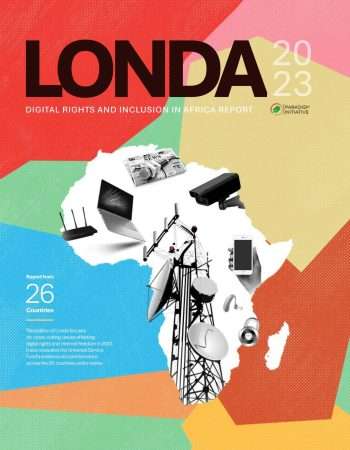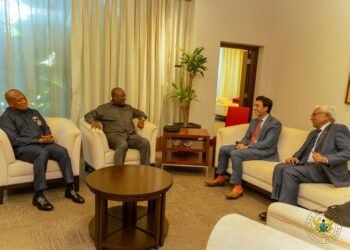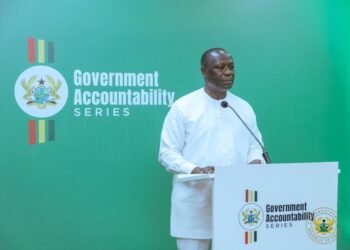The 2023 LONDA Report on digital rights and inclusion in Africa, published by the Paradigm Initiative (PIN), has revealed that a total of 10.75 million Ghanaians did not use the internet at the beginning of last year. This means that at least 31.8 percent of the national population (33.80 million) was offline at that time. However, the country’s internet penetration rate, which stood at 53 percent in the previous year, increased to 68.2 percent in 2023.
The LONDA 2023 report includes 26 African country reports written by digital rights experts from across Africa and is published annually to monitor the environment, document violations, and report on the state of digital rights and inclusion on the continent. It serves as an advocacy tool for engagement with various stakeholders in the reported countries, measuring their annual performance and providing critical recommendations to improve the digital space.
“In terms of internet freedom, the Freedom House report designates Ghana as ‘partly free’ due to obstacles in access, violations of user rights, and content restrictions. Although the country experiences minimal internet disruptions, planned blackouts can intermittently interrupt access for some residents. While rural areas in Ghana lack internet infrastructure, efforts are underway to bridge the urban-rural digital divide through initiatives such as the Ghana Investment Fund for Electronic Communications (GIFEC).”
Londa 2023 Digital Rights and Inclusion in Africa Report
Despite efforts to improve internet access, such as the World Bank’s $200 million for the government’s Digital Acceleration Project aimed at improving internet access in rural areas and promoting digital inclusion, a persistent digital divide exists in Ghana.
This divide particularly affects women, and persons with disabilities, and hinders their access to and use of digital technologies. The report recommended a multi-stakeholder approach to addressing the digital rights situation in the country, including addressing issues such as the affordability of the Internet and mobile phones through subsidies, special prizes, financing schemes, and other innovations.
Progressive Policies and Legislative Frameworks

Ghana’s commitment to digital rights is underscored by its legislative frameworks and policy initiatives. The passage of the Data Protection Act in 2012 stands as a testament to the government’s efforts to safeguard online privacy and security.
The Director General of the Ghana Cyber Security Authority (CSA), Dr. Albert Antwi-Boasiako commenting on the report pointed out that a key pillar of digital inclusion is guaranteeing an affordable internet that is accessible to all segments of the society.
“In Ghana, initiatives such as the National Broadband Infrastructure Project, Girls in ICT Programme, and the free Wi-Fi for senior high schools programme has helped to expand access to the internet in under-served communities and bridge the digital divide.”
Dr. Albert Antwi-Boasiako, Director General of the Ghana Cyber Security Authority (CSA)
Some Recommendations from the Report

Based on the analysis in the LONDA Report, several recommendations are proposed to promote digital inclusion and internet freedom in Ghana.
The report highlighted the need for collective action to ensure that Ghana leverages connectivity for empowerment and prosperity for all. It calls for the implementation of protections, reporting mechanisms, and accountability for violence against civilians.
The report also urged that the National Media Commission should be reformed and strengthened to protect press freedom, and there is a call for the protection of vulnerable and marginalized groups such as female persons with disabilities (PwDs) and LGBTIQ+ individuals by refraining from passing legislation that would restrict their censorship, surveillance, or make arrests possible.
The report called for the development, review, and update of comprehensive legislation addressing digital rights, including privacy protection, freedom of expression, and access to information. Ghana’s parliament is recommended to strengthen legal protections for media freedom, censorship, data privacy, digital security, and the safety of journalists.
“The civil society should develop and support initiatives that enhance digital literacy, including digital security. Digital literacy ensures that the public is informed about their rights in the digital age and the risks associated with navigating the digital space.”
Londa 2023 Digital Rights and Inclusion in Africa Report
READ ALSO: Ghana’s Economy Requires Fundamental Resetting- Leading Economist



















